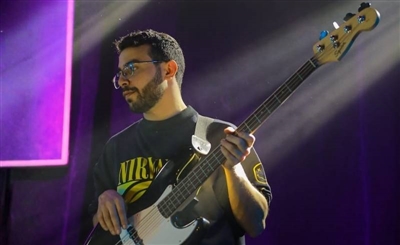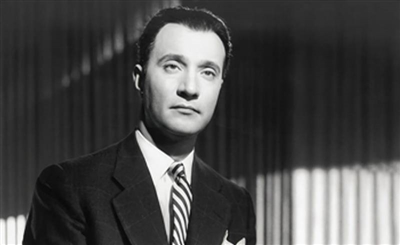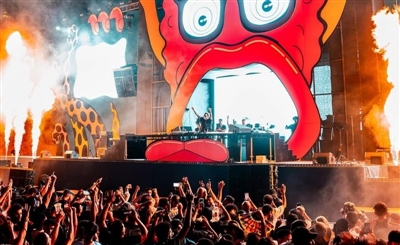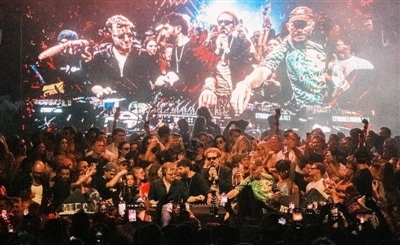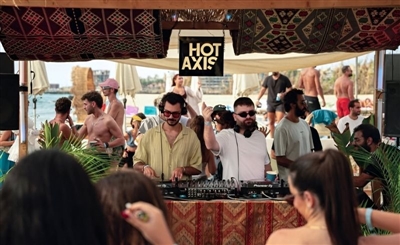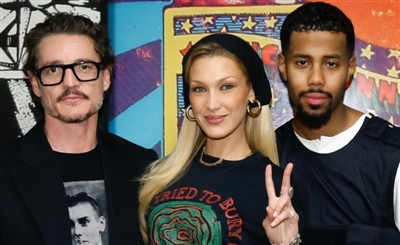Songs of a ‘Sad Girl’: In Conversation with Syrian-Croatian Artist Dania Hallak
Scene Noise gets up-close-and-personal with the budding singer-songwriter, who opens up about her kaleidoscope of influences, her recent move to the big, bad New York City and life as an ‘American Sad Girl'.
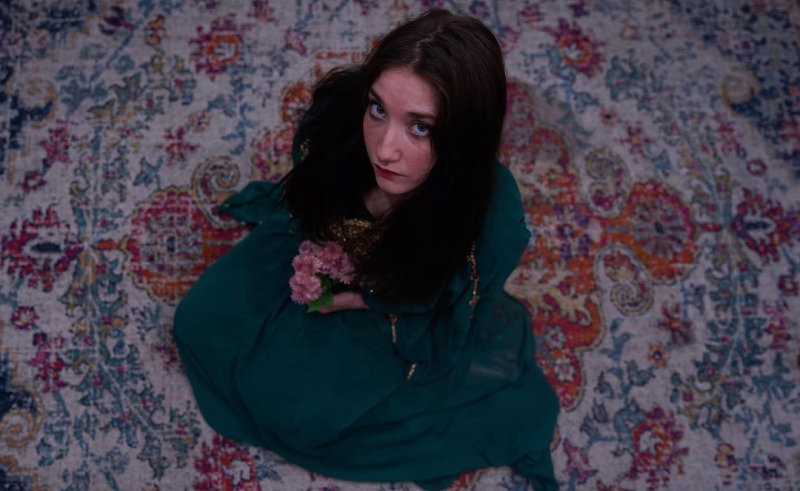
On a deep dive through YouTube a couple weeks back, we stumbled across the page of Dania Hallak, a young singer/songwriter making waves over the past few years, racking up over 500,000 listens on streaming platforms in 2020 alone. Raised on the melodies of Arab classics and the sounds of early-to-mid century jazz, she also finds a kindred spirit in soulful contemporary art-pop, bringing together a range of international musical influences together with her Syrian-Croation heritage to create a kaleidoscopic musical blend.
Between her own single releases, via Brooklyn-based collective/label Goodstuff Records, and appearances on works by collaborators Hadji Gaviota, Teeze and MOMMASBOY, Dania has been busy over recent years, and amidst the COVID-19 pandemic made the brave move away from her home and towards New York City.
An outspoken advocate of mental health, as well as Arab and Muslim representation in the US art scene, Dania packs a killer voice and songwriting chops to boot, making her one of the most interesting emerging MENA Diaspora artists. Ahead of her upcoming single, ‘Slow’, we caught up with the Dania to discuss quarantine, her multicultural influences, and the challenges and excitement of moving to a new city.
Some of our readers may not be familiar with you or your work yet, could you introduce yourself to them?
Yes! I’m Dania, and I’m a Syrian-Croatian-American singer/songwriter based in New York. I make sad girl music that is influenced by my weird ass background.
Tell us more about this ‘weird-ass background' - how has it shaped your music?
Coming from such a diverse background, I grew up on artists ranging from Fairouz to Lana del Rey to Billie Holiday. I love Arab melodies and word play, Croatian folk songs my grandma used to sing me, and American jazz I learned in school. I also love pop music like Billie Eilish and Lana del Rey because I’m still a basic American sad girl. <iframe width="800" height="450" src="https://www.youtube.com/embed/QNfzuj2Q64s" frameborder="0" allow="accelerometer; autoplay; clipboard-write; encrypted-media; gyroscope; picture-in-picture" allowfullscreen></iframe>
What inspires you these days?
My family, culture, and identity have been on my mind a lot these days. I haven’t been able to be around my family or culture much, since I’ve been quarantined right after moving to a new city. My music tends to be how I work through my emotions, so up to now I’ve written a lot about love and depression as I experience them. Recently, I’ve been writing more about my struggles with my identity as a multicultural first generation American.
I barely saw Arab or Muslim artists growing up in the US, and always wished to see someone like me up on stage. I’m seeing that more and more these days, and hope to both fulfil little me’s dreams and uplift the next generation of artists.
What was behind the decision to move there?
I was studying to go to medical school, and had started applying when my mom was diagnosed with cancer. The first song I wrote and released properly was ‘Mala’, a love song for and about my mom. I realised through this experience that music was where my heart lay.
I decided to move to New York because the only people I knew well in music were there, and I wanted to integrate myself into the scene and meet people.
Is NYC more welcoming to your music than Philadelphia?
NYC has been super welcoming, despite my poor timing moving, right before the pandemic hit. Philly’s music scene is wonderful, vibrant, and I’ve felt really supported by people there. I also love NYC because it has a lot of people to meet!
Speaking of the pandemic, has it served up any unique challenges in regards to your music career?
Definitely. Trying to do a career change from medicine to music while knowing very few people and not being able to leave my house has been incredibly difficult. I used to mainly be a performer – I was singing a lot of gigs pre-COVID and was excited about getting my music to the world through performances last Spring. It was hard on me when they were all cancelled.
The pivot from mostly performing to all recording has been tough, but I feel like I’m finally gaining some momentum with it and I’ve been enjoying the experience. It’s still hard to meet people or convince anyone to listen to my music, so if you’re reading this, and want to connect, my Instagram is @dania_music_ , and my music is available on all streaming services!!
Can you tell us a bit about your relationship with Goodstuff Records?
Goodstuff is a multimedia label and collective started by two of my friends as a label for artists, by artists. They manage recording artists and visual artists, as well as put on events and do non-profit work.
Do you see your music as a platform for activism?
Yes, definitely. Music is how I express myself, and activism is important to me. Arabs especially use music in their activism a lot, and Arab protest music is a genre that I will forever love.
As a Muslim, I believe it is my duty to fight against oppression, and I’m also aware of how in our community there is a massive stigma against subjects like mental health and race. Music is a powerful way to break barriers.
What’s your approach to songwriting and production?
I tend to write poems and word maps, to get an idea for what emotion I’m trying to evoke. Then I play around with melodies over chord progressions, and try to figure out what vibe and sounds I want the song to have. Lastly, I’ll bring what I have to producers, and we work together to complete the vision.
How do you approach producers and other collaboration?
It’s hard to create truly great music without other people. The people around me inspire and push me. A lot of times a producer will send me a beat and I’ll just have fun freestyling with a friend, and next thing I know a song is born! It's the most fun and organic way to create a song.
My next single, ‘Slow’, is coming out at the end of January! I’m super excited for this one because I’m going to take a temporary departure from ballads (though the lyrics are still supersad Girl).
Follow Dania on Instagram.



